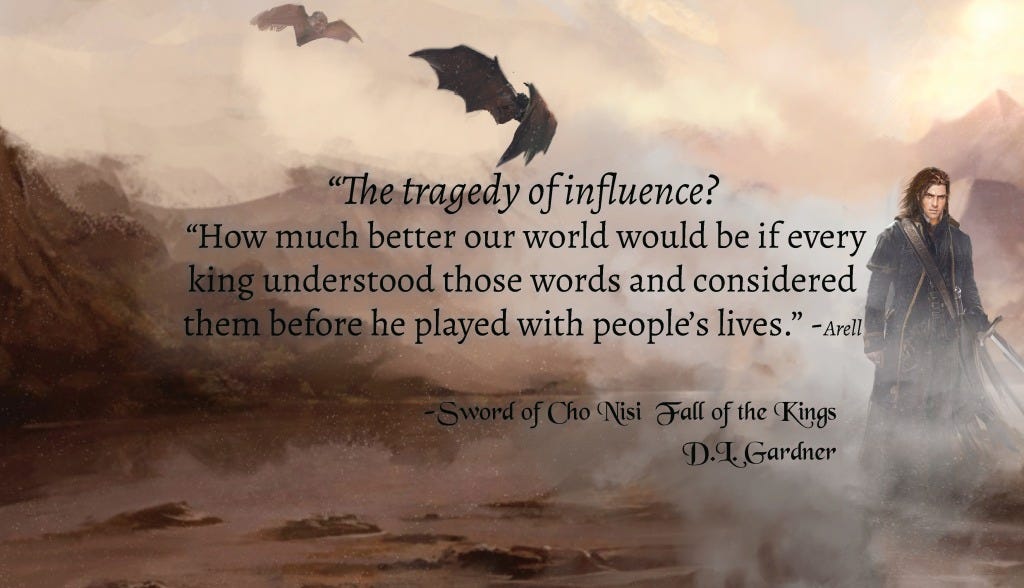The Tragedy of Influence
In my novel Sword of Cho Nisi, there's a supporting character, an incompetent wizard, Kairos, who could very easily be offered the throne, but he refuses despite the fact it would mean marrying the woman he loves so dearly. His incompetence comes from an unfortunate circumstance concerning the death of his father. You see, his father was a wizard (it's in the genes) and fought many battles with King Tobias. During one of the battles he died. Not by enemy fire, but by generating so much magic that he had a heart attack and it killed him. Kairos was so traumatized by this, that his fear of living up to his full potential prevents him from being the whole person that he is. In this scene with Arell, the possibility of accepting the throne comes to him once again and he responds with this answer to Arell.
“I am not happy about taking King Tobias’ place. I didn’t even want to be king of Cho Nisi, but that was inevitable," Arell said.
“I understand completely. I’m glad it was you and not me.” Kairos grinned briefly and then shrugged. “I would make a terrible king.”
“I disagree. I think you would be a fair king. And you have influence.”
“And that is the rub. I do not always make moral decisions. I’m a coward, and so my influence would cause tragedy.”
Arell reflected on what the wizard said. “The tragedy of influence,” he repeated. “How much better our world would be if every king understood those words and considered them before he played with people’s lives. Your wisdom alone would put you above others, Kairos. In reality, I’m not so sure I would be a righteous king either.
We live in a world today that is bent on creating influencers. It's everywhere. Our children are taught in schools to be self-confident, to take the world by the horns, so to speak, to get to the top, to influence people and be leaders. Even in the work place the same teaching thrives. Self-help books pound the message into employers and employees both. The Internet is plagued with influencers in the market place, in politics, even in churches, synagogues and mosques.
The problem is, there are not enough 'time outs' to consider the tragedy influencing people down hurtful, wrong, unjust, or immoral paths has upon humanity. It doesn't take an expert to count the influencers in history who led masses of people to destruction. Caesar, Napoleon, Hitler, to name only a few. And there are less notable influencers that have created cults and led unsuspecting believers to destruction.
"To whomever much is given, of him will much be required; and to whom much was entrusted, of him more will be asked." Luke 12:48
Or as Spiderman puts it. "with great power comes great responsibility"
If we teach our children to become influencers, let us teach them to consider their followers above all things and to act and influence in love, kindness, and humility.





